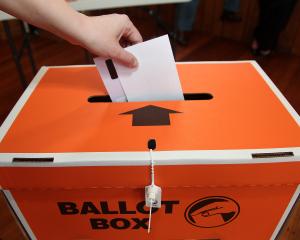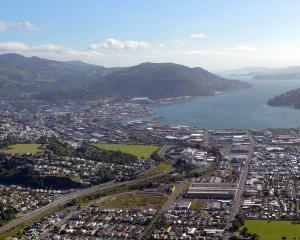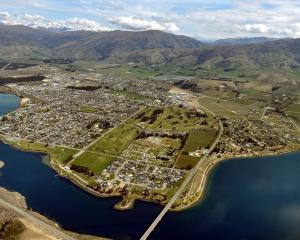
West Harbour Community Board candidate Kristina Goldsmith is one of only two people standing for the board, and is concerned some community boards may cease to exist if candidates fail to put their name in the hat.
The scenario came close to reality in 2015 when the Dunedin City Council’s representation review endorsed the recommendations of an independent panel that suggested reducing the number of community boards in the city from six to five and adjusting boundaries so urban areas were not covered.
It was also suggested the number of elected members on each board drop from six to four, while the number of city councillors stay the same, 14.
University of Otago politics professor Janine Hayward chaired the panel.
"At the time, the review panel found things had changed in terms of those communities of interest and what we were suggesting was a better representation of the communities of interest that needed to have community board representation," she said.
Following submissions, the recommendations were not accepted.
Because of the media attention around the issue, record numbers of candidates stood for their local community boards at the 2016 local government elections, Prof Hayward said.
"The public needs to be reminded that the elections are on and that they matter."
She was sad to hear there were so few candidates for the 2022 election.
If community boards were to be phased out, it would involve a long process through another representation review, she said.
Mrs Goldsmith was concerned at the lack of candidates for the West Harbour board, and was worried some community boards could cease to exist if people did not stand for election.
"It’s really vital to have community boards still going to advocate for your area, for what you want to see in the 10-year plan, because the DCC has got quite a big area to look after.
"If you don’t have these little birds saying ‘what’s going on in the West Harbour?’ then we might just be forgotten about."
She believed there was apathy towards standing because many people had been strained by life under Covid-19.
"I also did wonder if the $200 deposit to stand might have been a cost that was a little bit out of reach for people."
Another part of the problem was many people did not know what being on a community board entailed, she said.
"It’s a really exciting time to come on to the West Harbour Community Board because the shared path is going to be finished in February, and we’ve got the cruise ships coming back in October."
On a nationwide level, Local Government New Zealand (LGNZ) is concerned some roles will not be filled, or key roles will go uncontested, unless more candidates come forward before nominations close tomorrow.
LGNZ president Stuart Cosby said the last election attracted the lowest number of nominations in relation to available seats since LGNZ began collecting data.
At this rate, there was a risk of even fewer nominations this year.
"Competition for seats is a sign of a healthy democracy."
Most community boards across the southern regions are struggling to attract enough candidates to fill all of their seats.
As of late yesterday, the DCC had still only received 20 candidates for its 36 community board seats.
Other community boards with just one nomination so far were Bluff (five vacancies), Maniototo (four vacancies) and West Otago (six vacancies). Teviot Valley has not had any nominations for its four vacancies.
Nominations close at noon tomorrow.










